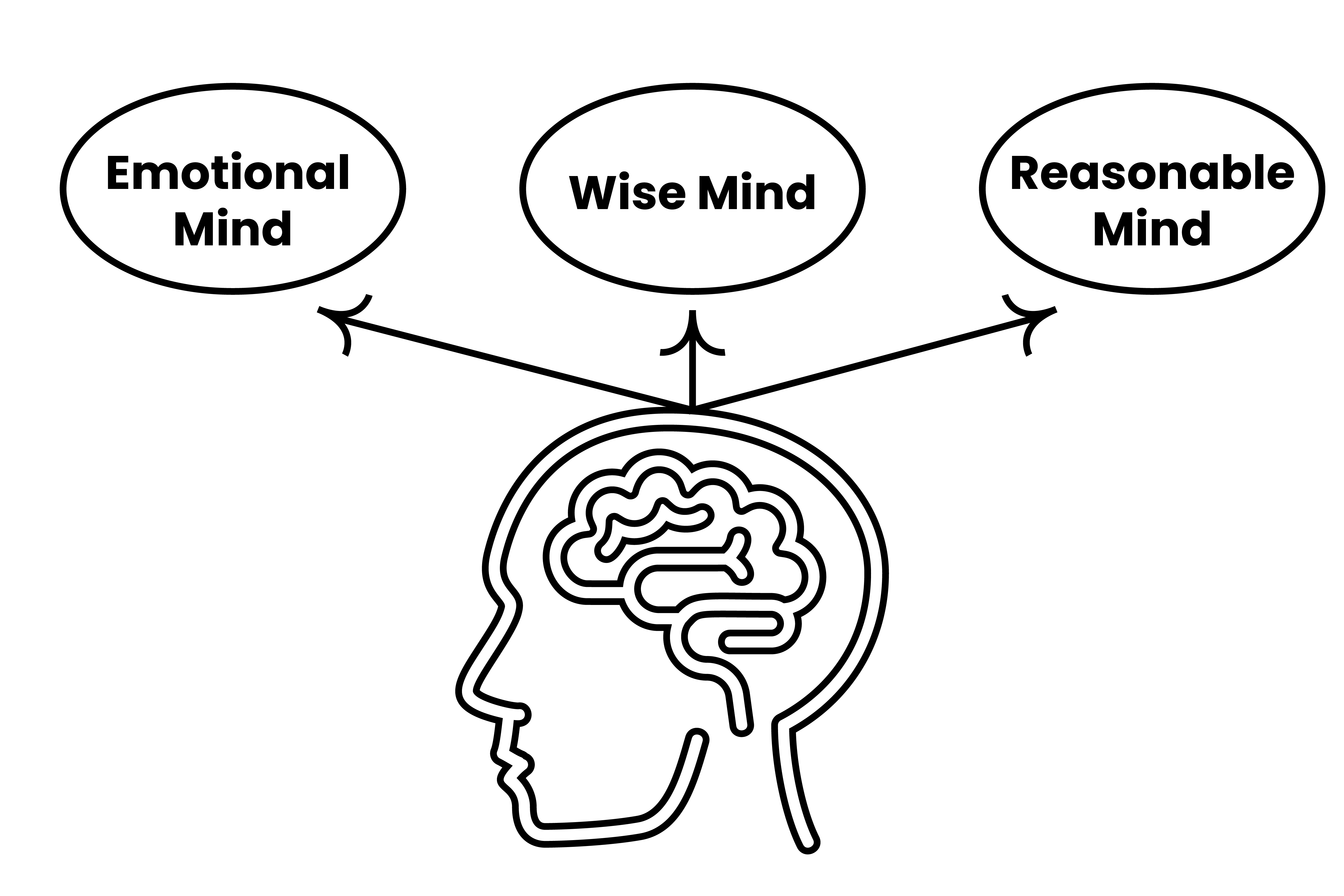Embrace Adjustment with DBT London: Your Guide to Mental Health
Embrace Adjustment with DBT London: Your Guide to Mental Health
Blog Article
Equipping Individuals Via Effective Dialectical Practices Treatment (DBT) Providers: Building Stronger Mental Wellness Foundations
In the realm of mental health and wellness and wellness, the importance of equipping people through effective Dialectical Behaviour Therapy (DBT) services can not be overemphasized. By concentrating on the core principles of DBT, such as boosting emotional policy abilities, boosting interpersonal performance, building distress resistance methods, and growing mindfulness methods, individuals can start a journey towards structure more powerful mental health foundations. The influence of DBT exceeds plain sign administration; it provides an alternative technique that furnishes people with the tools required to browse life's difficulties with resilience and self-awareness. As we check out the transformative possibility of DBT in equipping people to lead even more satisfying lives, the path to enhanced mental health and wellness and health comes to be an engaging story that beckons exploration.
Understanding the Core Principles of DBT
.jpg)

One core concept of DBT is recognition. Another basic aspect is dialectics, which shows people to view circumstances from numerous viewpoints and locate the synthesis in between conflicting ideas or emotions.
Moreover, the idea of dialectical abstaining is central to DBT. This principle encourages people to stay away from suicidal behaviors while also approving themselves. By recognizing and incorporating these core concepts, therapists can effectively carry out DBT methods and support individuals in their journey towards emotional guideline and mental wellness.
Enhancing Emotional Law Abilities
Developing efficiency in managing emotions is an essential aspect of fostering mental wellness and interpersonal effectiveness - DBT London. Enhancing emotional guideline skills is a core element of Dialectical Behavior Treatment (DBT) that gears up people with the tools to navigate intense feelings in a positive and healthy and balanced fashion. Via DBT, people learn to recognize, comprehend, and regulate their emotions, resulting in enhanced mental health outcomes
DBT emphasizes the importance of mindfulness, which includes being present in the minute without judgment. This method enables individuals to observe their feelings without ending up being overwhelmed by them, enhancing their capacity to respond properly rather than react impulsively. By cultivating mindfulness, people can develop a better sense of self-awareness and emotional control.
In addition, DBT educates functional abilities such as distress resistance and emotion policy strategies to aid individuals take care of tough emotions. By discovering these abilities, individuals can decrease spontaneous behavior, enhance decision-making, and enhance their connections with others. Inevitably, enhancing psychological policy skills with DBT empowers people to lead even more meeting and balanced lives.

Improving Interpersonal Performance
Having actually established a solid foundation in psychological policy skills within the framework of Dialectical Behaviour Treatment (DBT), the focus currently shifts towards improving interpersonal effectiveness. Improving interpersonal efficiency is a critical part of DBT as it outfits individuals explanation with the needed abilities to browse see this page social interactions, connect successfully, set limits, and build much healthier relationships.
In DBT, interpersonal efficiency abilities are educated via components that concentrate on areas such as assertiveness, efficient communication, and interpersonal analytic. By discovering these skills, individuals can improve their capability to share their demands and wishes, preserve self-respect, and develop stronger connections with others.
Exercising mindfulness is an essential part of improving interpersonal effectiveness within the DBT framework. Mindfulness permits individuals to be present in their communications, listen proactively, and respond attentively instead of respond impulsively. By integrating mindfulness right into their everyday lives, individuals can grow higher self-awareness and emotional policy, which are crucial for effective interpersonal communications.
Building Distress Tolerance Techniques
Checking out reliable approaches for managing psychological distress is essential for people looking for to improve their coping skills and resilience. Building distress tolerance techniques is an important aspect of Dialectical Behaviour Therapy (DBT) that encourages individuals to browse difficult emotions without coming to be overwhelmed.
Furthermore, mindfulness methods play a considerable role in building distress resistance. Mindfulness motivates people to remain existing in the minute without judgment, permitting them to observe their ideas and feelings without responding impulsively. This recognition enables individuals to endure distress a lot more effectively and develop a higher feeling of control over their reactions.
In addition to these techniques, developing a tailored distress resistance plan with the advice of a trained therapist can give individuals with a tailored approach to managing emotional distress - DBT London. By incorporating these techniques right into every day life, individuals can reinforce their mental health foundations and improve their overall health

Cultivating Mindfulness Practices
To grow their distress resistance strategies better, people can concentrate on growing mindfulness methods as a complementary strategy within the structure of Dialectical Practices Therapy (DBT) Mindfulness, an essential part of DBT, entails taking note of today minute without judgment. By promoting mindfulness, individuals can boost their recognition of ideas, feelings, and bodily sensations, advertising a much deeper understanding of themselves and their experiences.
Mindfulness methods in DBT consist of techniques such as mindful breathing, body scans, and observing thoughts without attachment. These methods urge people to develop a non-reactive position in the direction of their internal experiences, permitting them to react to difficult situations with greater clearness and calmness. By including mindfulness right into daily routines, individuals can learn to regulate their emotions extra efficiently, decrease impulsive actions, and grow a sense of internal peace.
Through cultivating mindfulness methods, individuals undertaking DBT can construct a solid structure for taking care of stress and anxiety, boosting connections, and boosting overall wellness. By incorporating mindfulness into their healing trip, people can create beneficial abilities that equip them to navigate life's obstacles with resilience and self-awareness.
Conclusion
Finally, efficient Dialectical Behavior Treatment (DBT) solutions play a vital duty in empowering people to develop stronger mental wellness structures. By comprehending the Go Here core principles of DBT, enhancing emotional law skills, improving social efficiency, developing distress resistance methods, and growing mindfulness methods, individuals are outfitted with the essential tools to navigate their emotions, partnerships, and challenges in a more resistant and flexible fashion. DBT solutions use a comprehensive strategy to promoting mental well-being and equipping individuals to lead meeting lives.
By focusing on the core concepts of DBT, such as improving emotional regulation abilities, improving social performance, developing distress resistance strategies, and cultivating mindfulness methods, individuals can get started on a journey towards building stronger psychological health structures. Enhancing psychological regulation skills is a core element of Dialectical Behaviour Therapy (DBT) that outfits individuals with the devices to navigate intense feelings in a healthy and balanced and constructive way.Furthermore, DBT educates useful skills such as distress tolerance and emotion guideline techniques to aid people take care of difficult emotions.To strengthen their distress tolerance strategies even more, individuals can focus on growing mindfulness techniques as a corresponding method within the structure of Dialectical Behaviour Therapy (DBT) By recognizing the core principles of DBT, improving emotional guideline abilities, enhancing interpersonal performance, building distress tolerance methods, and cultivating mindfulness practices, people are equipped with the needed devices to navigate their emotions, connections, and obstacles in a more resistant and flexible manner.
Report this page